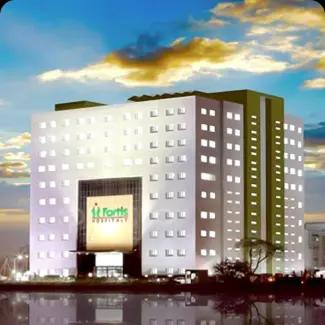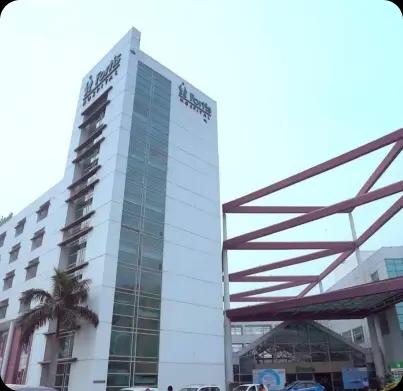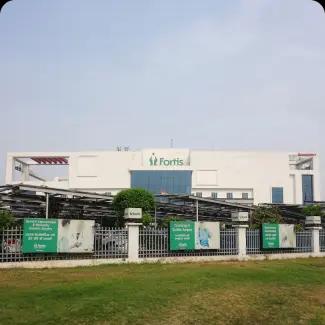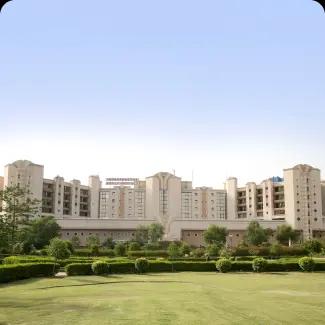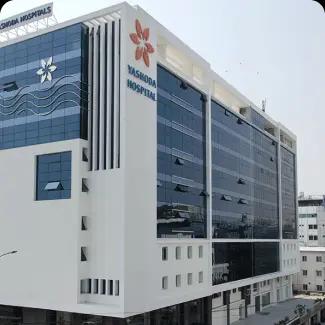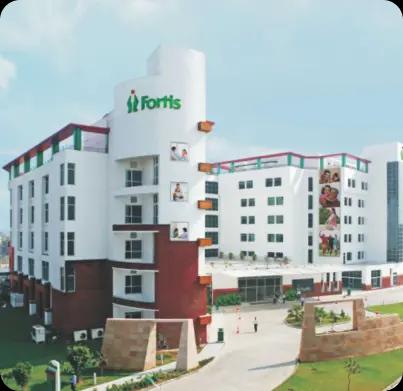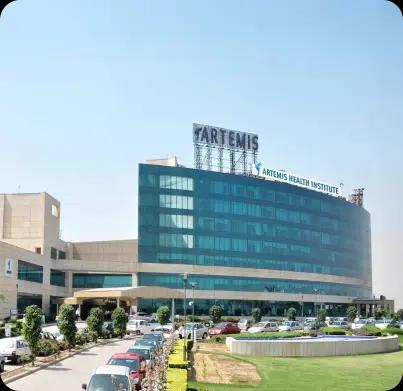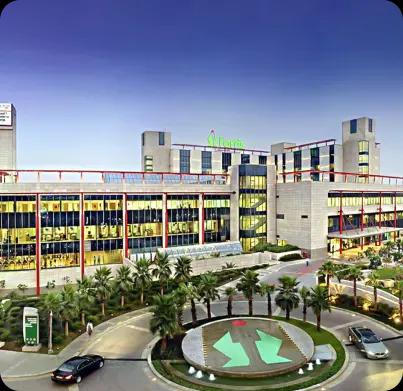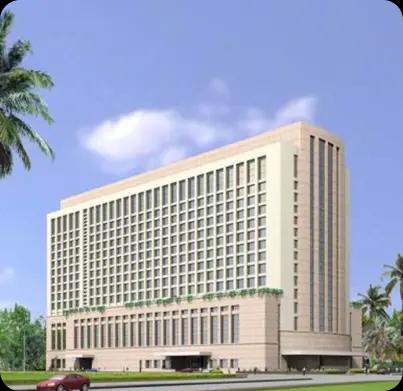
Extracorporeal Shock Wave Lithotripsy (ESWL)
Extracorporeal Shock Wave Lithotripsy (ESWL) is a non-invasive medical procedure designed for the treatment of kidney stones and other calculi. The technique employs shock waves to fragment stones into smaller pieces, facilitating their natural passage through the urinary tract without the need for surgery.
Free Pick up and Drop
No Cost EMI
Post Surgery Care
Extracorporeal Shock Wave Lithotripsy (ESWL) is a non-invasive medical procedure designed for the treatment of kidney stones and other calculi. The technique employs shock waves to fragment stones into smaller pieces, facilitating their natural passage through the urinary tract without the need for surgery.
Symptoms Of Extracorporeal Shock Wave Lithotripsy (ESWL)
Symptoms
When do you need an ESWL?
Types of conditions
There are three main types of Extracorporeal Shock Wave Lithotripsy (ESWL)
Standard ESWL
Ultrasound-guided ESWL
Fluoroscopy-guided ESWL
Standard ESWL
This is the most common type, using shock waves generated outside the body to fragment the stones.
When do you need an ESWL?
-
Extracorporeal Shock Wave Lithotripsy (ESWL) is a non-invasive procedure used to treat kidney stones and other urinary tract stones. It is typically recommended in the following situations:
-
Small to Medium-Sized Kidney Stones: ESWL is most effective for kidney stones that are less than 2 centimetres (about 0.8 inches) in diameter. Stones larger than this may require alternative treatments such as percutaneous nephrolithotomy (PCNL) or ureteroscopy.
-
Location of the Stone: ESWL is most commonly used to treat kidney stones located in the kidney or upper ureter. Stones in the lower part of the ureter or those located close to the bladder may be better treated with other procedures.
-
Stone Composition: ESWL is effective for treating certain types of kidney stones, including calcium-based stones and some types of uric acid stones. However, it may be less effective for cystine stones or certain other types of stones.
-
Patient Preference or Health Considerations: ESWL is a non-invasive procedure that does not require incisions, so it may be preferred by patients who want to avoid surgery or have medical conditions that make surgery risky.
-
Pregnancy: ESWL may be considered as a treatment option for kidney stones in pregnant women, as it does not expose the fetus to radiation or require anaesthesia. However, it is typically avoided during the first trimester of pregnancy.
Diagnosis
ESWL is considered based on:
-
Stone Size and Composition: Suitable for certain sizes and types of stones.
-
Patient Health: Overall health and medical history determine eligibility.
Causes and Risk Factors
-
Dehydration: Insufficient fluid intake leads to concentrated urine.
-
Dietary Factors: High intake of oxalate-rich foods like beets, chocolate, and nuts.
-
Genetic Predisposition: A family history of kidney stones may increase the risk.
-
Medical Conditions: Certain conditions, like urinary tract infections, can contribute.
-
Age: Individuals between 30 and 60 years are more susceptible.
-
Gender: Men are generally more prone to kidney stones.
-
Obesity: Higher body mass index (BMI) can increase the risk.
-
Geographical Location: Certain regions may have higher rates due to climate and diet.
Preparing for Surgery
-
Diagnostic Tests: Imaging studies to locate and assess the size of the stone.
-
Blood and Urine Tests: Checking for kidney function and identifying underlying causes.
-
Health Assessment: Evaluating overall health to determine surgical fitness.
-
Hydration: Maintaining proper fluid intake to reduce stone formation.
-
Dietary Adjustments: Limiting certain foods that contribute to stone formation.
-
Medication Management: Adjusting medications that may affect blood clotting.
Treatment Details
Surgical Approaches:
-
Extracorporeal Shock Wave Lithotripsy (ESWL): Non-invasive shock waves to break down stones.
-
Ureteroscopy: A thin tube is inserted through the urethra to remove or break stones.
-
Percutaneous Nephrolithotomy (PCNL): Surgical removal through a small incision in the back.
Anesthesia:
-
Local or General Anesthesia: Depending on the complexity and type of surgery.
-
Sedation: Administered to keep the patient relaxed and comfortable during the procedure.
Types of Surgery
ESWL (Extracorporeal Shock Wave Lithotripsy)
-
Non-invasive: No incisions are made.
-
External Shock Waves: Directed towards the stone to fragment it.
Ureteroscopy
-
Invasive: A thin tube (ureteroscope) is inserted through the urethra.
-
Direct Visualization: Allows the surgeon to locate and treat the stone directly.
PCNL (Percutaneous Nephrolithotomy):
-
Invasive: Involves a small incision in the back.
-
Stone Removal: Direct access to the kidney for removal or fragmentation.
Recovery
Postoperative Care
-
Monitoring: Observation for complications such as bleeding or infection.
-
Pain Management: Medications to control postoperative pain.
-
Hydration: Encouraging increased fluid intake to flush out any remaining stone fragments.
Return to Normal Activities:
-
Varies by Procedure: ESWL allows a quick return to normal activities, while PCNL may require more downtime.
-
Follow-up Appointments: Scheduled to monitor recovery progress.
Your journey to good health begins here

Accredited Hospitals
Nationally accredited hospitals for high-quality care

Multi-language Support
Convey your needs in the language you're most comfortable in

Travel Booking Assistance
Seamless booking assistance for your healthcare journey

Personalised Treatment Plans
A treatment journey tailored to all your preferences and needs

Unparalleled Hospitality
Experience exceptional hospitality during your stay

Easy Medical Visa Approvals
Dedicated assistance for medical visa requirements
Plan your healthcare journey with Karetrip!
India’s Best Hospitals are Partnered With Karetrip
Access World-Class facilities from top Hospitals across India
Consult with India’s most experienced doctors
Experience premium care from India’s leading specialists

Dr. V V Lakshminarayanan
Nephorologist
45+ Years Of Experience

Dr. Ashok Kumar R
Nephrologist
21+ Years Of Experience

Dr. Sathish M. Rao
Nephrologist
33+ Years Of Experience

Dr. Navdeep Singh Khaira
Nephrologist
38+ Years Of Experience

Dr. Sandeep Guleria
Nephrologist
35+ Years Of Experience

Dr. Alka Bhasin
Nephrologist
24+ Years Of Experience
Cost Estimation
Learn about the expenses involved in the procedure and what factors affect them.

The cost of ESWL is influenced by various factors, including:
-
Stone Size and Complexity: Larger or complex stones may require more sessions.
-
Facility and Equipment: Costs may vary based on the healthcare facility and the type of lithotripter used.
-
Geographical Location: Different regions may have varying healthcare costs.
Here's a table showing the estimated cost range across different cities in India:
The average cost of the Extracorporeal Shock Wave Lithotripsy (ESWL) in India is around ₹ 28,000 to ₹ 70,000.

₹ 70,000
High Cost
₹50,000
Average Cost
₹ 28,000
Low Cost
The LIST of AVERAGE COST of the Extracorporeal Shock Wave Lithotripsy (ESWL) across TOP 9 cities in India in Indian Rupee (INR) is as follows :
City
Lowest Cost
Average Cost
Highest Cost
Delhi
₹ 30,000
₹ 40,500
₹ 60,000
Mumbai
₹ 35,000
₹ 50,000
₹ 70,000
Bangalore
₹ 32,000
₹ 50,000
₹ 65,000
Chennai
₹ 30,000
₹ 45,000
₹ 55,000
Kolkata
₹ 28,000
₹ 40,000
₹ 50,000
Hyderabad
₹ 32,000
₹ 40,000
₹ 60,000
Ahmedabad
₹30,000
₹40,000
₹55,000
Pune
₹ 32,000
₹ 50,000
₹ 65,000
Jaipur
₹28,000
₹ 40,500
₹50,000
Commonly Asked Questions
How many sessions of ESWL are typically required?
The number of sessions varies based on stone size and complexity.
Is ESWL painful?
The procedure is generally well-tolerated, and discomfort is managed with anaesthesia or sedation.
Can ESWL be used for all types of kidney stones?
ESWL is effective for certain types and sizes of stones, and the choice depends on individual cases.
What is the recovery time after ESWL?
Most patients can resume normal activities shortly after the procedure, with minimal downtime.
Are there any dietary restrictions after ESWL?
Some dietary modifications may be advised based on stone composition to prevent recurrence.

Do you still have a query?


"I had a successful surgery at Fortis Escorts Hospital, and it was all thanks to Karetrip's help in finding the right hospital for me. The entire process was smooth and stress-free, with Karetrip handling all the arrangements and answering any questions I had. The medical team at the hospital was outstanding, and the facilities were top-notch. I highly recommend Karetrip to anyone looking for a tension-free healthcare experience."
Read MoreFatima
Chattogram


"Thanks to Karetrip, I got connected with MAX Hospital in New Delhi. The team guided me through every step – from finding the right doctor to handling travel and visas. They made a daunting process feel like a breeze. The care I received at MAX Hospital was outstanding, and I can't thank Karetrip enough for making it possible. They truly put patients first and go the extra mile to ensure a smooth healthcare journey. I'm grateful beyond words!"
Read MoreHasan
Dhaka


"At first, I was unsure about having a medical procedure done in a foreign country. However, Karetrip's team at Indraprastha Apollo Hospital made me feel much better. The hospital was very clean, modern, and had everything they needed to help me. The staff were very kind and did everything they could to make me feel comfortable. I'm really happy with how my treatment turned out, and I appreciate Karetrip for making it easy and stress-free."
Read MoreImran
Sylhet
 Google Reviews4.9/5
Google Reviews4.9/5




I had a successful surgery at Fortis Escorts Hospital, and it was all thanks to Karetrip's help in finding the right hospital for me. The entire process was smooth and stress-free, with Karetrip handling all the arrangements and answering any questions I had. The medical team at the hospital was outstanding, and the facilities were top-notch. I highly recommend Karetrip to anyone looking for a tension-free healthcare experience.
Fatima
Chattogram
 Google Reviews4.9/5
Google Reviews4.9/5




